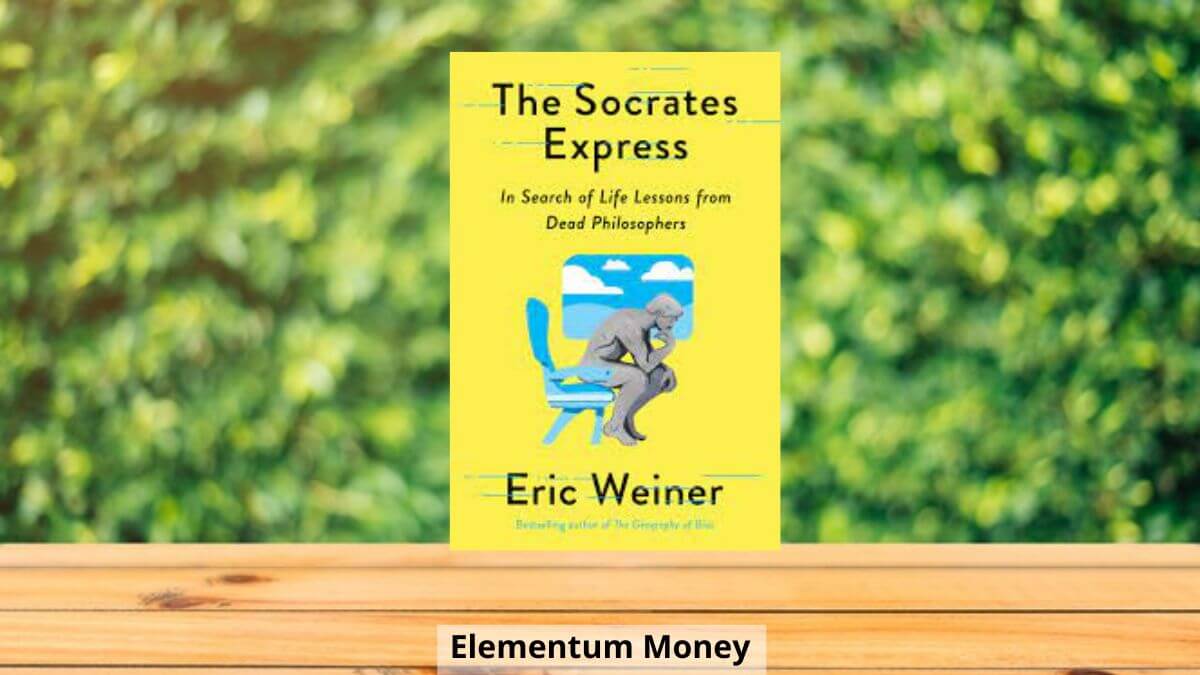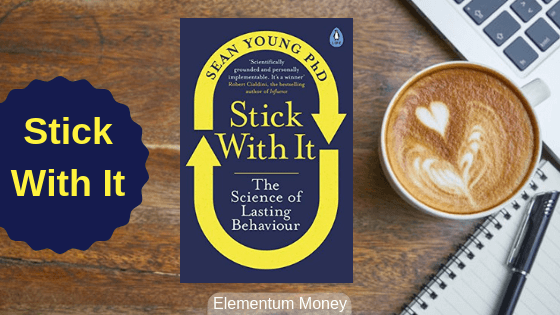When I was younger and studying to graduate in History, I always thought of philosophy as the poorer, silly cousin. For many years after that, seduced by the charms of youth, there never really seemed like a reason to pause or even consider the thought of the p-word. I was in the whole I-am-too-cool-for-that zone.
But, some years back, I like to think I started noticing a transformation in myself. Non-fiction was not always to be pooh-poohed for the wisdom from those books was welcome. As an addendum, philosophy then started making the cut too. For essentially, philosophy is just a concentrated version of the elixir of wisdom. Philosophers across ages have simply tried to light up our path as we totter through understanding ourselves and how to go about life.
We stumble through life, hoping to pick up scraps of wisdom here and there. In the meantime, we’re confused. We mistake the urgent for the important, the verbose for the thoughtful, the popular for the good. We are, as one contemporary philosopher puts it, “misliving.”
-The Socrates Express, Eric Weiner
So, it should come as no surprise that one of the books that got me totally hooked was The Socrates Express by Eric Weiner. After a long time, I am finally inspired enough to dig deep into my will power and scratch the surface of writing resistance for a Book Club post.
What is The Socrates Express?
The Socrates Express is the latest book by former NPR journalist Eric Weiner. The book distils the wisdom from 14 philosophers across ages and geographies in the way that Weiner sees it. The last bit is particularly important because not only does that mean he picks out certain, particular aspects but also mixes it with a lot of his contemporary situation.
Not just that. Interestingly, he picks out one trait or action which the philosopher could inspire us most to. The book is mostly written on different trains connecting to locations inhabited by the philosopher being written about. So, you have Weiner travelling in trains across America, Europe, China and even India (Gandhi makes the cut as a philosopher in the book)!
The writing is often light and frothy yet it carries along the weightier points of the philosopher in question effortlessly.
As for why The Socrates Express, I am guessing Socrates might just be his favourite and Express comes from the train journey itself. And why would Weiner connect philosophy to trains? When you know an author does a better job of explaining things, you let them do it:
Yet both philosophy and trains possess a certain mustiness: once-vital parts of our lives reduced to quaint anachronisms. Today few people take the train if they can help it, and no one studies philosophy if their parents can help it. Philosophy, like riding trains, is something people did before they knew better.
-The Socrates Express, Eric Weiner
As per habit, I will talk about five of my favourite philosophers and resulting philosophies from the book. The intent remains that this makes the book seem unmissable and you go ahead and pick it up.
1. How to wonder like Socrates
This chapter was dedicated to my current favourite communication device – questions. We live in a world where confidence in one self and absolution of knowledge is rewarded. To wonder aloud with annoying never ending line of questions is mostly associated with and ends with childhood. However, Socrates was a person known for his reasoning skills that scholars have often mentioned by different names – dialectic, elenchus, inductive. Yup, that’s all greek to me, too. But, sample the way Weiner talks about the importance of wondering through questions:
Questions aren’t one-way; they move in (at least) two directions. They seek meaning, and convey it, too. Asking a friend the right question at the right time is an act of compassion, of love. Too often, though, we deploy questions as weapons, firing them at others—Who do you think you are? and at ourselves, Why can’t I do anything right? We use questions as excuses—What difference will it make? and, later, as justification, What more could I have done? Questions, not the eyes, are the true windows to the soul. As Voltaire said, the best judge of a person is not the answers they give but the questions they ask.
-The Socrates Express, Eric Weiner
To simply label wonder as the art of questioning would be to short change the idea. Wonder is more of a leisurely, sweeping curiosity of things answerable and unanswerable. Wonder is what happens when there is a vacuum in our head and surprising things pop up. Wonder is the art of pausing in our frenetic lives, taking a deep breath, noticing things around and indulging in a slow, mulling curiosity about them. But, don’t believe me. Read the wonderful way in which Weiner describes wonder:
Wondering is open-ended, expansive. Wondering is what makes us human. That’s been true ever since the first caveman wondered what would happen if he rubbed two sticks together, or dropped a large rock on his head. You never know until you try and you never try until you wonder.
Curiosity is restive, always threatening to chase the next shiny object that pops into view. Not wonder. Wonder lingers. Wonder is curiosity reclined, feet up, drink in hand. Wonder never chased a shiny object. Wonder never killed a cat.
-The Socrates Express, Eric Weiner
Reading this, while I inherently identified a wee bit to Socratic teaching, it also inspired me to give in to the pleasures of wondering a little more. It doesn’t even have to remain in the realm of the stereotypically philosophical, right? You could wonder why you are hooked to reading the posts on Elementum Money. Or why rainy days make you feel jubilant. You could wonder why some TV shows make you feel so much more deeply than others. When you start on this path, there’s really no looking back.
2. How to be an idealist like Schopenhauer
Although the chapter was titled “How to listen like Schopenhauer”, some of the things which struck me the most about this guy was his idealism. Weiner focuses on music and it’s role in our life, especially how listening to it, really listening to it, changes us for the better. But, there are two other things about Schopenhauer that got me into the relatable-nodding zone.
The opening sentence of his book The World as Will and Idea, as Weiner very aptly pointed out is a doozy:
The world is my idea.
Just think about it and savour the depth of the idea communicated in five simple words. The first thing that came to my mind was how we all experience the world differently. Our viewing of the world, how we go about it, the actions we take and just everything in between is all so subjective hinging on all that has happened to get us there.
This also linked to another thought I read somewhere (mostly in a book about feedback) and now hold close to myself: All advice is autobiographical. Essentially, since we view our world so subjectively, it is that unique thought process and past experiences that guides us to give advice. Yet that piece of advice will hold true only for us since no one can have exactly the same life as we do.
The world is indeed, our idea. It is our journey and it is how we see things in our own unique way. Remembering this also should make us more tolerant and inclusive is we extend this thought to making room for other idea-based versions of the world. Or as Weiner puts it:
Every day, as we go about our lives, we experience this mentally constructed, or phenomenal, world. It is real—the way the surface of a lake is real. But just as the glassy surface isn’t the whole lake, the phenomenal world represents only a fraction of reality. It fails to account for the depths.
-The Socrates Express, Eric Weiner
Schopenhauer is known for another doozy – The porcupine principle. To communicate the analogy, he paints a picture of a group of hedgehogs who depend on each other for warmth yet can’t get too close or end up pricking each other. This is the story of human relations. We need other humans yet when we get too close we also open ourselves to vulnerability in turn.
In all of this, Schopenhauer also talks about how art is liberating, giving special credit to music. Weiner elaborates more on it with the thing of listening like Schopenhauer.
3. Be kind like Confucius
While I won’t be bold enough to say I am always successful, one of my life’s mantra that I have picked up on the way is – behave with others the way you would want them to behave with you. For instance, I know for a fact I want people to be patient, understanding and warm. When you do all those things for others, it can be wrapped up in one word – kindness.
The one teachable trait that Weiner has picked up from Confucius is ren (occurring 105 times in The Analects) which literally translates to “human-heartedness” of which kindness seems to form just one aspect. In totality, a person of ren was one who practiced five virtues – respect, magnanimity, sincerity, earnestness and kindness.
For Confucius, kindness is not squishy. It is not weak. Kindness is practical. “Extend kindness to all”, says one Confucian, “and you can turn the whole world in the palm of your hand”.
-The Socrates Express, Eric Weiner
Even if you are unable to practice all the five lofty virtues mentioned by Confucius, before you act or say something potentially nasty, simply ask yourself – would I like it if I was on the receiving end? How can I make it better?
4. How to cope like Epictetus
This was one of those chapters that I related to so much. At some moments of life, when I am not slipping up, I am possibly a Stoic. More importantly, I also think Stoicism and some bits of Hindu spiritualism seem to have a common origin somewhere.
In a nutshell, stoicism relates to letting go of things you can’t control. More importantly, it is about accepting those things as written in your own fate. The art lies in how to cope with it.
The whole idea of whatever has to happen will happen and that the current events are enroute to that future is something I have grown up with.
Much of life lies beyond our control, but we command what matters most: our opinions, impulses, desires, and aversions. Our mental and emotional life. We all possess Herculean strength, superhero powers, but it is the power to master our interior world. Do this, the Stoics say, and you will be “invincible.”
-The Socrates Express, Eric Weiner
In a way, I have also embraced the idea of forced optimism. There will always be some events outside my control. But, life is about the story we tell ourselves. I try and twist the event in my head to tell myself how it will end up benefitting me some day in the near or far future. Of course I have my moody moments, but swinging back to a baseline sense of acceptance comes easier.
5. How to grow old like Beauvoir
Ah, aging. It is a process I am now beginning to recognise in me. I turn 35 this year and see a stark difference from what I was while in college, obviously. The difference lies not just in the measure of my girth but even the face that reflects back the years in between. But then when I see the kids in my office, I see my aging in a different way altogether, sprinkled with a sense of maturity and calmness that I probably did not have that time.
A very key aspect of aging that Weiner picks up from his philosopher buddy Simone Beauvoir is the idea of recollection of the past.
What to do with our past? That is a knotty question for people of any age but especially the elderly. They have more past than the rest of us. Everywhere they turn, they’re bumping into their past, tripping over it. It takes up precious closet space. They might be tempted to discard their past, or donate it to charity. That would be a mistake. The past is valuable, and in two distinct ways: one therapeutic, the other creative.
-The Socrates Express, Eric Weiner
No wonder the older we get, the more we indulge in story telling from our days of yore. As a kid, I never understood my grandmother’s fascination with the yarn she would spin of people from her past we were clueless about. These days, I hear quite a few stories from my folks, with a fair amount of patience I would like to believe. Now that I have some kids at work looking up to me with worshipping puppy eyes, I give in to spinning my own fanciful yarn of the things I have done in my gargantuan (atleast by their standards) career of 12-odd years.
But before I go drifting in meaningless directions, let me bring back the discussion to two other key points Weiner takes from Beauvoir’s cranky writing about old age.
As we grow older, we care lesser for what the world thinks of us. I have seen that, especially with older women around me. I have heard so many of them claim how they have spent decades caring for others at the cost of their own well-being. As they age, they claim time for their own self-discovery. It possibly holds true for men as well but I have heard less of an expression from the gender.
Another aspect of aging is the idea of getting more set in our ways and having our life governed by habits. I know that is something we often find annoying in quite a few old folks around us because some of those habits could also be under a time warp which we find difficult to wrap our heads around. But, if you have any doubt about the value of a habit or routine (especially a good quality one), just check out James Clear’s ode to it for dispelling any of your doubts. This could be a corollary to not caring about the world but being more comfortable in your skin. You know what works for you, probably after much experimentation and you stick to it.
To say that this post scratches the mere surface of The Socrates Exoress would be a quintessential understatement. Eric Weiner writes so well that I was tempted to get on a few train journeys myself hoping that was the magic trick. The way he connects different threads from his life to philosophy was striking. After all, the job of anyone deciphering something “boring” is to make it relatably have a place in your life.
So, what are you waiting for? Hopefully the post serves as an inspiration and you pick up this marvellous book. If you feel wiser for it, don’t forget to thank me in the comments below J





Leave a Reply